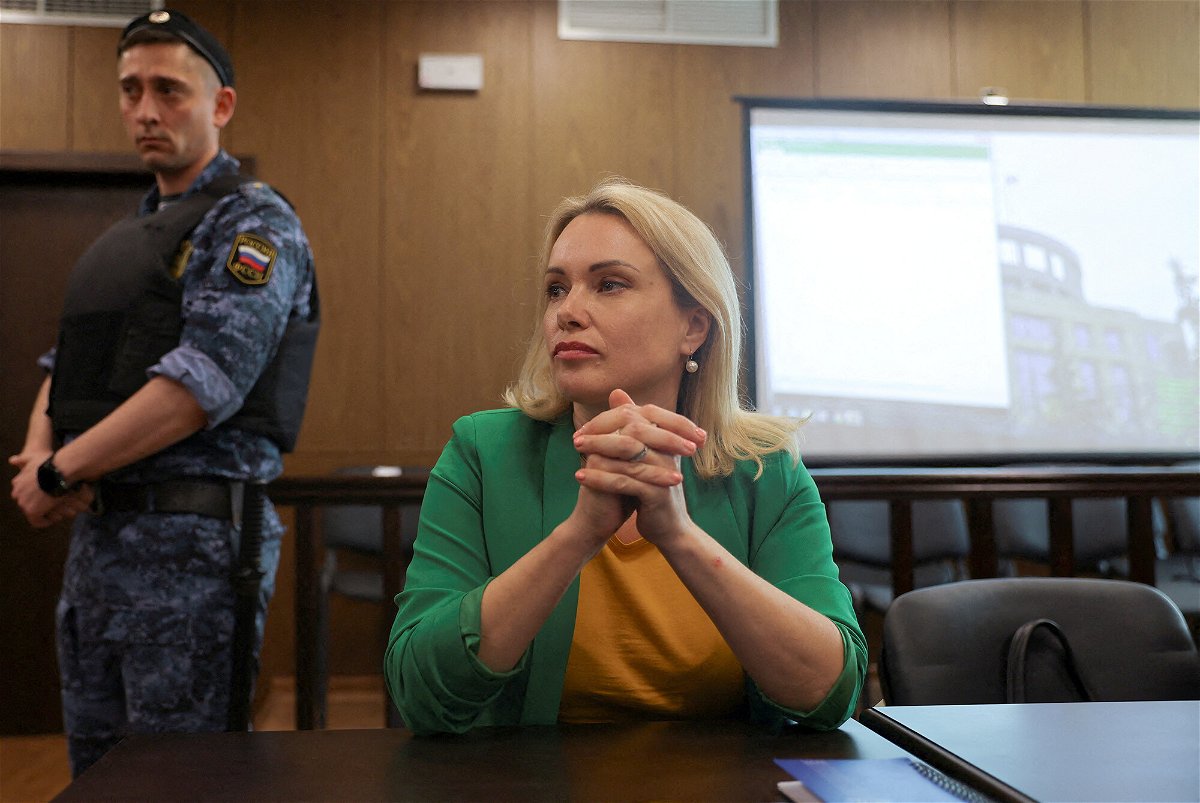Russian journalist who protested on live television escapes house arrest

Former Russian state TV employee Marina Ovsyannikova
By Katharina Krebs and Anna Chernova, CNN
Marina Ovsyannikova, a Russian journalist who staged a daring protest live on state-run television, has been declared a fugitive after going on the run, Russian media reported.
Ovsyannikova was placed under house arrest in August. She had been charged with disseminating false information about the Russian military after participating in a protest in July, according to Russian state-run news agency TASS. Her detention was supposed to last until Sunday.
Ovsyannikova’s ex-husband said that she had escaped house arrest with her daughter on Saturday, TASS reported. Her lawyer, Dmitry Zakhvatov, said he could not confirm those allegations.
“All I know is that she’s gone,” Zakhvatov told CNN.
Ovsyannikova has been added to the Russian Ministry of Internal Affairs’ “wanted list,” TASS reported on Monday.
The 44-year-old journalist shot to international fame in March when, as an editor at Russia’s state-controlled Channel One television station, she stood behind an anchor and held up a sign that read “No War” during a live broadcast.
The Kremlin described her actions as “hooliganism,” a criminal offense in Russia. Following her protest, Ovsyannikova was arrested, interrogated for more than 14 hours, released and fined 30,000 rubles (around $500).
A Moscow court found her guilty of organizing an “unauthorized public event” and she fled Russia, but returned in July, according to her official Facebook page.
Ovsyannikova was later fined 50,000 rubles (around $820) over a video recorded on July 13 in which she spoke out against the conflict.
She also shared content of herself holding a one-woman anti-war demonstration on an embankment opposite the Kremlin in Moscow on July 15.
The on-air protest was particularly risky for Ovsyannikova, as it came during an increased crackdown on both political dissent and freedom of the press, forcing local Russian media to curtail their coverage of the invasion or shut down altogether. International news networks including CNN temporarily suspended broadcasting from Russia in the days that followed the invasion.
Ovsyannikova said she felt “ashamed” of her work at Channel One, which she said was effectively peddling Kremlin propaganda. But after the invasion, she said she felt it was “impossible to stay silent” and wanted the world to know that many disagreed with the war.
“The decision was brewing for quite a long time,” she told CNN’s Christiane Amanpour shortly after the initial protest. “The war was the point of no return, when it was simply impossible to stay silent.”
Speaking to CNN from Germany in May, where she was working as a correspondent for the newspaper Die Welt, Ovsyannikova said she was subject to online harassment, bullying and attempts to discredit her — including from Ukrainians who disapproved of a former Russian propagandist covering the conflict.
— David Goldman and Joshua Berlinger contributed to this report.
The-CNN-Wire
™ & © 2022 Cable News Network, Inc., a Warner Bros. Discovery Company. All rights reserved.